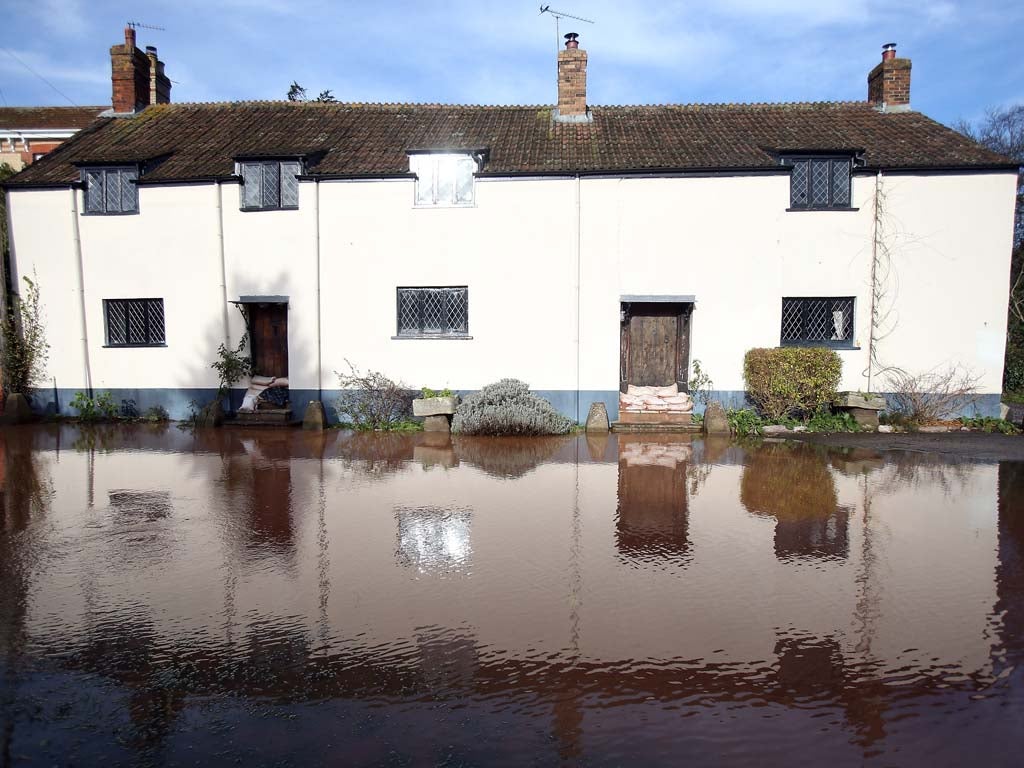Your home is a flood risk? That’s life
Ministers and councils have been complicit in allowing building on floodplains, so it's somewhat inevitable that these streets will eventually be flooded.


Your support helps us to tell the story
From reproductive rights to climate change to Big Tech, The Independent is on the ground when the story is developing. Whether it's investigating the financials of Elon Musk's pro-Trump PAC or producing our latest documentary, 'The A Word', which shines a light on the American women fighting for reproductive rights, we know how important it is to parse out the facts from the messaging.
At such a critical moment in US history, we need reporters on the ground. Your donation allows us to keep sending journalists to speak to both sides of the story.
The Independent is trusted by Americans across the entire political spectrum. And unlike many other quality news outlets, we choose not to lock Americans out of our reporting and analysis with paywalls. We believe quality journalism should be available to everyone, paid for by those who can afford it.
Your support makes all the difference.Two people have died, more than 800 homes are flooded and, while the emergency services work around the clock, ministers and insurance companies are in high-noon talks about a scheme that for four years has guaranteed “affordable” flood insurance to everyone, including those in high-risk areas.
Without agreement, the arrangement will expire next June. I say: let it.
That is not because having your house or business flooded is not appalling: physically, psychologically, financially, it is as bad as disasters come. And if you live in an old-established town, such as – say – Malmesbury, whose main street became a river over the weekend, you have a right to expect your insurance to pay. But it stands to reason that if Malmesbury had suffered regular catastrophic floods, that main street, those houses, would not still be there. Long ago, in the pre-insurance age, residents would have decamped to higher ground.
Many of the houses flooded this autumn, however, were built recently, and for some owners the experience is already familiar. How come they warrant “affordable” insurance? The whole principle of insurance is to spread the risk, but also to assess it. Your travel insurance will depend on your age, state of health and where you go. Your contents insurance will be higher if you live in a high-crime area, as will your car insurance if you have an accident. That’s insurance; that’s life.
For some reason, flood has been deemed a different type of risk. And here is why. Successive governments have been complicit with local authorities in allowing development on floodplains. The word is self-explanatory. But the attractions of such land – flat, relatively unpolluted and, naturally, undeveloped – have made it desirable, especially where land is hard to come by.
You can’t blame home-buyers. Why should they conduct a detailed site survey before buying? They have to assume that a site given planning permission is safe. But you can blame developers. In effect, they have received an indirect subsidy, and a hefty one, for building on land liable to flooding. They should have been required to pay for the necessary defences. And if they objected that this would make building too expensive, well – that is the reality.
A report compiled for the Government last year said that as many as 160,000 houses had been built in areas of high flood risk in the past 10 years. But each time the floodplain serves its proper purpose – an eventuality forecast to become more frequent – insurers throw up their hands, the spectre of uninsurable, and so unsale-able, houses looms, and much of the cost is transferred to the taxpayer.
When the costs are totted up, building on floodplains should not make economic sense. But until developers are forced to make those calculations, or local authorities revise their definition of building land, the temptation represented by floodplains will not be resisted. Painful it might be, but allowing insurance for floodplain development to become unaffordable could be the place to start.
Join our commenting forum
Join thought-provoking conversations, follow other Independent readers and see their replies
Comments